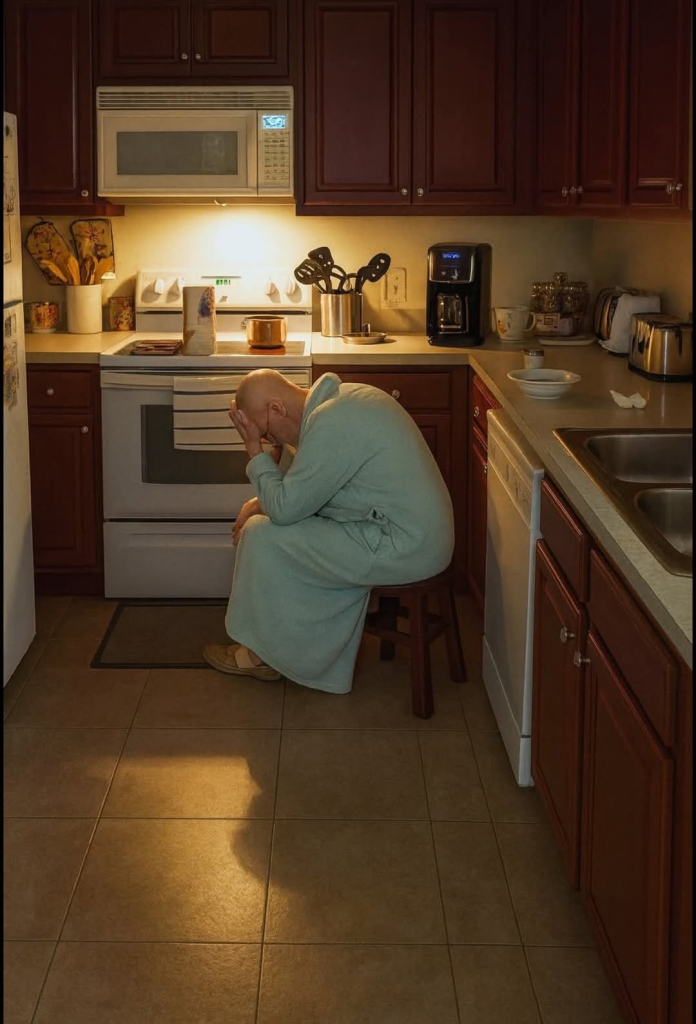Meet Sharon — my mother-in-law. When I first met her, I honestly didn’t understand her. Her thick Virginia accent sounded foreign to my ears. She spoke with such certainty, often in that polite, Southern way that sometimes bordered on bossy, at least that’s how I saw it. But she was important to me because she was important to the woman I loved. I accepted her—but I didn’t really know her at all.
The turning point
Then came the moment that changed everything.
Five years into our marriage together, when things were going well, when we were happy, steady, comfortable—I received the news that my wife had leukemia. She was only thirty. I remember feeling the ground shift beneath us, as if our lives had cracked wide open and nothing would ever be the same.
We were terrified. The future looked scary and uncertain. But in that darkness, Sharon stepped forward. Quietly. Resolutely. Completely.

When duty becomes love
Despite everything she already had on her plate, Sharon didn’t hesitate. Her husband, a Vietnam veteran, depended on her; her own health was fragile. She had been through a mastectomy. She was receiving chemotherapy herself. She was still recovering. Yet day after day, she showed up—not just physically, but emotionally, spiritually, with her whole heart.
She moved into our house.
For two years straight she took over tasks most of us don’t fully appreciate until suddenly someone else is doing them. She bought groceries, cooked nearly every meal, washed clothes, cleaned the house. She drove my wife to dozens upon dozens of medical appointments—carrying those long drives, the wait in the car, the clinic visits, the sometimes bad news, sometimes good. She managed pill schedules—keeping track of the bottles, the dosages, the timing, the refill orders. She made calendars. She kept lists. She juggled doctor instructions. All this, while she herself was fighting her own cancer treatments, recovering from surgery, dealing with fatigue, nausea, fear.
Small moments, deep truth
I’d watch her humming while she worked, sometimes talking quietly to herself when no one else was around. Cooking dinner, or sweeping the floor. Waiting for oatmeal to cook. She’d pause, stir, check the timer, then just breathe a little and keep going.
I caught one such moment recently. She didn’t know I was looking. She stood by the stove, waiting for the oatmeal to cook—just that, in that ordinary morning kitchen light. It may seem like nothing. It may look like a simple, everyday task. But in that moment, I saw the sum of all she had done: the countless meals, the late nights, the silent prayers, the strength.
What grace truly looks like
This isn’t a story about heroic speeches or grand gestures. It’s not about applause. It’s about consistency. About showing up when it’s hard. About choosing love over comfort. Choosing care over letting go. Choosing presence over stepping back.
Sharon doesn’t need credit. She doesn’t demand recognition. But she inspires it anyway—for all who witness her. And truthfully, I think it’s in these small, consistent acts — the unseen support, the force of character — where real greatness lives.
A thank-you note
Not everyone gets a real, living hero walking through their days at home. Not everyone sees a person being both caregiver and survivor. But I do. Every single day I thank God for her — for her arms, her heart, her resilience. For the way she chose love, even when I know it must’ve been so very hard. For her humility, her grace.
So if you ever wonder what true love looks like, I want you to picture Sharon. Waiting for oatmeal to cook. Showing up without fanfare. Loving without pause. That’s her. And I’m honored to share our story, because maybe it will remind someone else that there is real goodness in quiet moments. Real strength in not giving up. Real heroism in everyday compassion.